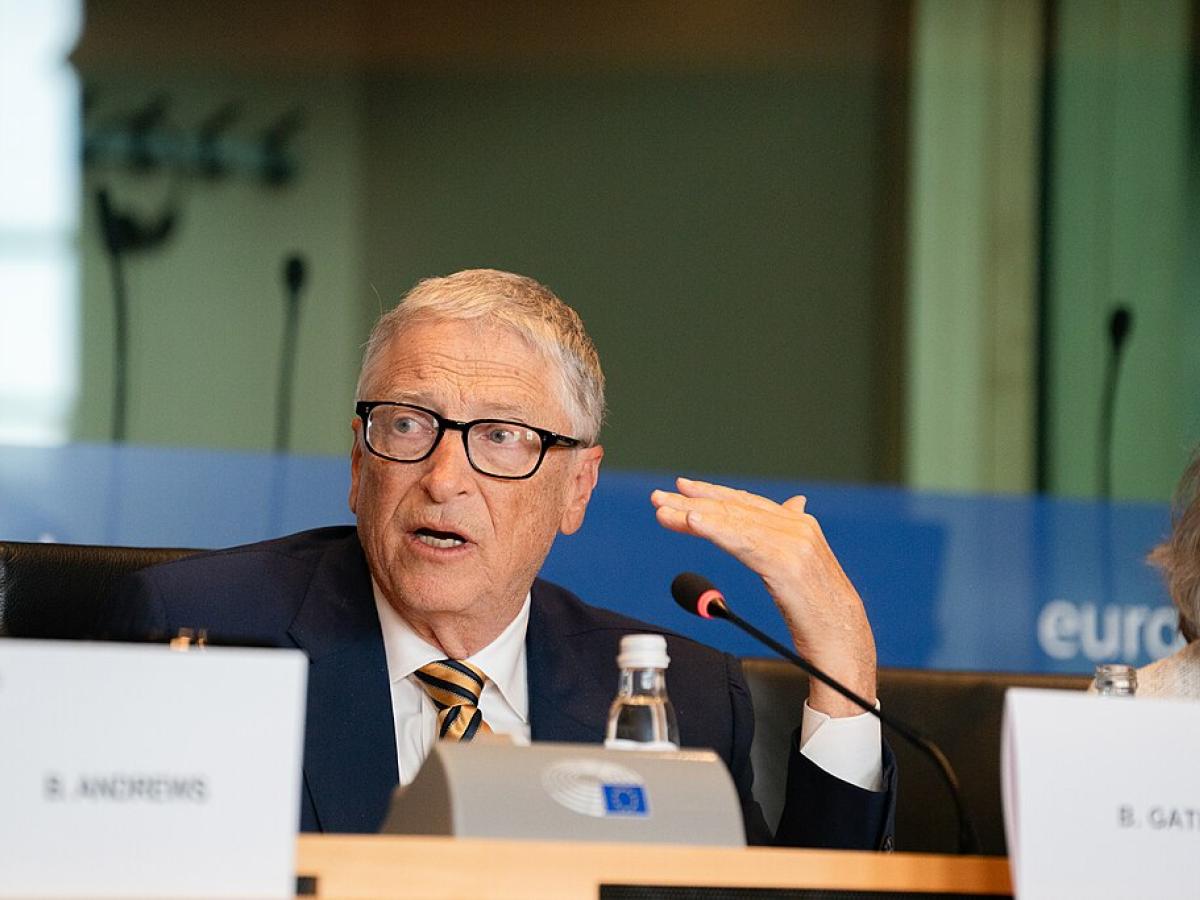
I meet many anxious people as I wait for meetings in the Palace Westminster, but one in particular stands out. As I was queueing to get through security, a breathless American man rushed over asking if he was in the right place to meet the Minister of State for Universities. Once I had reassured him that he was, and he had caught his breath, I asked him where he was from and what he did for a job. He told me he was a social psychologist from New York.
Funnily enough, the night before, I had been reading a book by a social psychologist from New York. I asked the man if he had come across the author, Jonathan Haidt. He replied with a smile: “I am Jonathan Haidt.”
I chuckle when I remember that chance encounter, especially considering the title of his latest book – The Anxious Generation. The book tackles a much more serious topic than queueing nerves. It claims to show, in the words of the subtitle: “How the Great Rewiring of Childhood is Causing an Epidemic of Mental Illness”.
The Anxious Generation is a tightly argued plea to parents and educators for a radical change in the way that young people are allowed to engage with digital technology in general and social media in particular.
It follows the line of thought he began in his book The Coddling of the American Mind which argued that ‘helicopter parenting’ has led to such a fragility in young adults that universities are no longer places of open and free dialogue, but somewhere young people feel the need to be protected from ideas they disagree with. That problem was what Haidt was preparing to discuss with the Minister when we met outside Parliament.
“Embracing all this is a desire to maintain and hand on to our children an earth that offers genuine possibilities of flourishing.”
The Anxious Generation makes a compelling case for the way we are failing a generation of children. It likens the social media world to another planet that we are all happily sending our children off to without first learning about or checking any of the risks linked with the potentially toxic environment. It concludes that as much as we are overprotecting our children in the physical world, we are under-protecting them in the digital world, thereby complicit in the resulting tidal wave of mental health disorders.
Haidt writes:
“Are screen-based experiences less valuable than real-life flesh-and-blood experiences? When we’re talking about children whose brains evolved to expect certain kinds of experiences at certain ages, yes. A resounding yes.”
Haidt argues that what children need is less screen time and more unsupervised play. Some might call this the re-enchantment of childhood– a rediscovery of wonder, and simple emotional connections with freedom, food, imagination, curiosity, those around them and the great outdoors. Perhaps there is healthy therapy to be found in this re-enchantment through the sharing of art, poetry, and fantasy. Maybe a rediscovery of faith and hope can help to bring healing.
Mary Grey, Emeritus Professor of Theology at the University of Wales in Lampeter, describes re-enchantment like this:
“The market’s language of desire must be replaced by reflecting what we really long for, like satisfying relationships and intimacy, meaningful communities where our values are shared, with working conditions that do not create an unbearable level of stress, enough income to cover basic and leisure needs, and planning for the future. Embracing all this is a desire to maintain and hand on to our children an earth that offers genuine possibilities of flourishing. … This is not an invitation to exchange reality for Magic Kingdoms, but to become embodied kinships of women, men, children and earth creatures in a re-imagined and transformed world of sustainable earth communities of healing and hope.”
The re-enchantment of childhood is an attractive theory. I often find myself comparing my children’s childhood with that of my own. I’m sure I played more in the garden than they do, climbed more trees, cycled more round the block, round the town, and later round the county in my spare time. I remember as a teenager getting on a bus to travel from Brighton to Durham without either parents or phones. Around the same time, I travelled to Tbilisi, Georgia with just a backpack, a map, a couple of friends and quite a lot of self-confidence. I wish that my children could experience some of the pleasures that come with fixing a bike or looking up at the stars or browsing the library to find answers, instead of just googling.
Yet, at the same time, if my children were making their way to Durham or Tbilisi today, I would certainly make sure they had plenty of charge on their phone and all the necessary mobile data roaming rights, and I would probably WhatsApp them regularly until they arrived safely at their destination.
Haidt presents a perfect story, one that explains all the evidence. He doesn’t mention anything that might challenge it, or anything that the doesn’t quite fit.
Haidt’s book touches a nerve. Not just because of my own contradictory feelings as a parent, but because of the shocking statistics that reflect the wider state of our nation’s children. With waiting lists for Child and Adolescent Mental Health Services at a record high, a 47 per cent increase in young people being treated for eating disorders compared to pre-pandemic, and an enormous leap in prevalence of probable mental disorder from one in nine children (in England aged 8-25 years old in 2017) to one in five (similar cohort in 2023), the mental health of the next generation is rightly highly concerning.
The blame has been levelled in many different directions: COVID lockdowns, school league tables, excessive homework, helicopter parenting, screen time, and general disenchantment in society at large. Some even say the increase is directly related to the increase in public discussion and awareness about mental health disorders.
For Haidt it is social media that is public mental health enemy number one. However, he does admit he is not a specialist in children’s mental health, child psychology or clinical psychology. This has led to some criticism about his conclusions. Professor Candice L. Odgers, the Associate Dean for research into psychological science and informatics at the University of California challenges head on the central argument of Haidt’s book. She claims:
“...the book’s repeated suggestion that digital technologies are rewiring our children’s brains and causing an epidemic of mental illness is not supported by science. Worse, the bold proposal that social media is to blame might distract us from effectively responding to the real causes of the current mental health crisis in young people.”
Similarly Henna Cundill, a researcher with the centre for autism and theology at the University of Aberdeen, wrote last week in an article for Seen and Unseen:
“From a scientific perspective, the argument is a barrage of statistics, arranged to the tune of ‘correlation equals causation’. “
Cundill and Professor Odgers are right to be sceptical. Sometimes we let our commitment to a story shape the way that we read the evidence. If there’s one thing I remember from A- level statistics it is that causation and correlation should not be confused. In his bid to add urgency and cogency to his argument, Haidt presents a perfect story, one that explains all the evidence. He doesn’t mention anything that might challenge it, or anything that the doesn’t quite fit. It is not a scientific treatise - which is both the book’s strength and its weakness.
Nevertheless, many of the recommendations Haidt suggests are wise and helpful. Even Professor Odgers, to some extent, agrees.
“Many of Haidt’s solutions for parents, adolescents, educators and big technology firms are reasonable, including stricter content-moderation policies and requiring companies to take user age into account when designing platforms and algorithms. Others, such as age-based restrictions and bans on mobile devices, are unlikely to be effective in practice — or worse, could backfire given what we know about adolescent behaviour.”
Therein lies the issue. Because of the lack of evidence for the causes, all we are left with – even from the experts – is what may or may not be likely to be effective in practice.
I wonder if this paucity of robust scientific evidence stems from the fact that the issues facing the next generation are even more complex than we could ever imagine.
The truth is that hype, hysteria and horror are more likely to gain traction than humdrum and happy medium.
Every generation is different from the last. My own youth in the UK in the late 1980s when I became part of the video games and micro-computers subculture was just as much a mystery to my parents and teachers. My generation’s problems were blamed on everything from the microwave to Mrs Thatcher to the milk that we drank following the disaster at Chernobyl.
It seems to me too simplistic to demonise the technology. It’s an easy sell, after all. In fact, whenever there is a major technical shift, horror stories are created by those who believe the dangers outweigh the benefits. Mary Shelley’s Frankenstein seems to be a reaction to the industrial revolution. The nuclear threat led to movies about Godzilla and 60-foot-tall Amazonian women. The advent of the internet brought us the Terminator films.
The truth is that hype, hysteria and horror are more likely to gain traction than humdrum and happy medium. Yet, despite the many and serious problems, the rise of new technologies, even social media, also have much to offer, and they are not going away soon. Instead of demonising new technology as the problem, perhaps we need to find ways to turn it into the solution.
And perhaps there are glimmers of hope. I like the fact that my children are connected to the wider world, that they know people and languages from more diverse places than I ever did. I like that they know what is going on in the world way before the 9 o’clock news. I like the fact that they are on the cutting edge of advancements I will never experience in my lifetime. I like the fact that they can get their homework checked by AI, that they don’t need to phone me up every time they want to try a new recipe, that we can grumble together about the football match in real time even when we are on different sides of the world. I like that they can browse the Bible or listen to podcasts about history while they are waiting at a bus stop. I like the fact that they have libraries of books at their fingertips, that they can disappear into fantasy worlds with a swipe and don’t have to spend hours at the job centre when they need to find work. And I love the fact that my children and their friends are rediscovering board games, crochet, embroidery and hiking and taking them to a whole new level because they are learning these crafts from experts around the world.
I sincerely appreciate that Jonathan Haidt cares about the real and desperate problem of youth mental health. His book adds weight to the pleas of those of us advocating for urgent investment into this area. It reminds us of the world beyond the digital borders and it gives us hope that the re-enchantment of childhood is not impossible.
However, the solution to these complex issues cannot be found in nostalgia alone. We cannot turn back the clock, nor should we want to. The past had problems of its own.
I would love someone to write a book that looks forward, that equips young people to live in the worlds of today and tomorrow. If, by some strange coincidence, Jonathan Haidt is reading this article and is in the process of writing that book, I do hope I will bump into him again to thank him.






